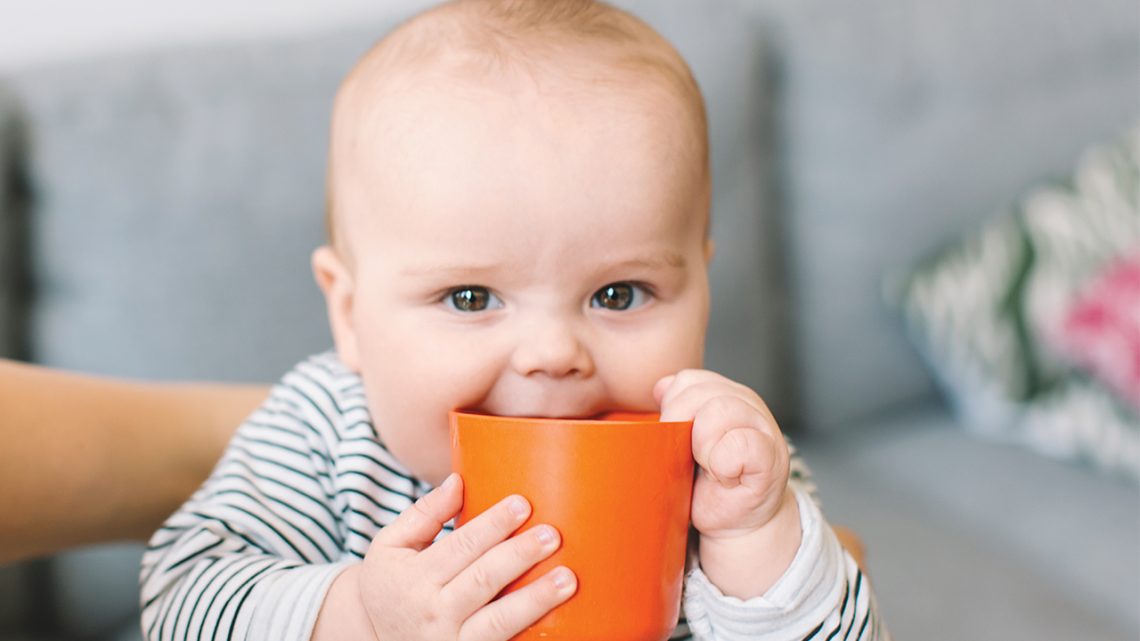when can babies drink water
September 9, 2022So, When can babies drink water? Tips for Parents
Do you have any questions about when newborns can drink water in addition to breast milk or formula?
Babies often don’t require water for the first few months; even when you do, your infant will only need a few sips. No one should go without drinking water. It turns out that newborns receive all the water they require from breast milk or formula during the first few months.
Learn when it’s OK to start giving your baby water and why it’s crucial to wait until he begins eating solids before doing so. Additionally, learn the answers to some often asked concerns about giving your infant water safely.
Why is water consumption essential for infants?
Everyone, even infants, should drink water since it performs many essential bodily processes. Water aids the body’s absorption of nutrients, lubricates joints, and controls digestion and body temperature. Adults often consider their daily water consumption when determining how much water they need to suit their demands. Babies, however, satiate their requirements quite differently. More on it is below!
Although breastmilk or formula should still be a baby’s primary beverage until one year, the American Academy of Pediatrics advises introducing water to infants as early as six months. The next best beverage choice is water, followed by pure cows or nondairy milk.
Why Is Water Not Recommended for Babies Under Six Months?
So, when can babies drink water? When water is introduced to breastfed infants, the baby may feed less frequently or not at all, resulting in malnutrition. Less frequent breastfeeding can also lead to a decrease in the amount of breast milk produced. Drinking water can cause diarrhea and malnutrition in infants younger than six months.
How much water can I give my baby?
After discussing when to give a baby water, it is time to discuss how much water should be given to infants. Once the infant begins consuming solid meals, a little sip of water can occasionally be added to the meal. This aids in improved food digestion and prevents constipation.
Ideally, you can give your infant 150ml (or half a cup) of water each day to start. As long as the infant is still nursing, this amount of water is sufficient.
You may gradually introduce more water to your baby after they reach the age of 12 months. Babies will consume less breast milk and more solid meals at this age. Although you may have developed a regular meal schedule, your infant needs at least 250 ml of water daily to be hydrated and have regular bowel movements.
A toddler needs about 1.3 liters of water each day between the ages of 1 and 3. (including 350 ml of milk). Urine testing is the most effective approach to determine if a newborn is getting enough water. The color of healthy urine should be light or colorless, not dark. Keep a bottle of water nearby for your kid so they may reach it anytime they are thirsty to maintain the amount of water ingested. Otherwise, while having fun, they can forget.
How should I give the infant water?
- At meals and snacks
Start by giving your tiny infant quantities of water at meals and snacks. This enables your infant to become accustomed to the taste of plain water and begin learning how to sip from a cup. To avoid replacing breastmilk or formula, limiting water intake to no more than 1 to 2 oz at a time is preferable. Wait until your baby is eating larger meals before moving to the higher end of the scale.
- In a cup
Giving babies water in a cup enables parents to teach them life skills like using a cup or straw to sip. Choose cups the right size for their little hands, and don’t hesitate to assist them if they need them. As your infant becomes adept at sipping from a cup, start with little quantities of water and work your way up.
- Think about foods
Your baby’s total water consumption is influenced by fruits, vegetables, and anything liquid at room temperatures, such as soup or popsicles. When you check your baby’s food intake, you may also find that they are getting more than it seems they are drinking. Sometimes it may feel like your baby isn’t drinking a lot of liquid.
- In a smoothie or popsicle
Homemade smoothies and popsicles are a fun way to introduce different fruits and veggies and to serve water. Their ability to pack a lot of nutrition and calories into a compact space can be very helpful for newborns who require extra calories or nutrients.
- The entire day
You may start providing additional water throughout the day after your kid becomes one year old. Let them know a cup is available in the kitchen or playroom so they may use it as required.
The Consequences of Giving Your Baby Water Too Soon
Due to the following risks, very young babies should not drink water:
- Nutrient deficiency: Babies who fill their stomachs and urges with water bottles miss out on nutrients from breast milk and formula.
- Not enough weight growth. In addition to breast milk or formula, she is not overeating if her baby frequently drinks water. Because of this, your kid won’t eventually consume enough calories to grow the proper weight.
- Imbalances in the electrolytes. Water intoxication, a potentially deadly condition when electrolytes (such as salt) in a newborn’s system get diluted, can result from letting your infant drink a lot of water. This may affect a baby’s normal bodily processes and cause symptoms like seizures.
Bottom Line
New mothers must be informed and conversant about when can babies drink water. When babies begin eating solid meals, they can then begin drinking water. This often occurs after six months. A newborn infant may keep hydrated on breast milk alone until they are six months old. However, you can start serving water in modest amounts after solid foods are introduced. Before giving the water to the infant, make sure you boil it first and then let it cool.




Po wyłączeniu większości telefonów komórkowych zniesione zostanie ograniczenie dotyczące wprowadzania nieprawidłowego hasła.W tym momencie można wejść do systemu poprzez odcisk palca, rozpoznawanie twarzy itp. https://www.mycellspy.com/pl/tutorials/how-to-find-out-your-wife-cell-phone-password/